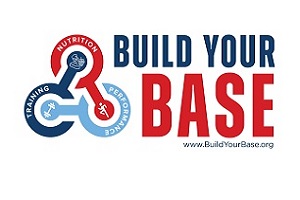RE-TEST OR LET IT RIDE: What To Do About Your College Entrance Exam
by David Mitchell
The results are in…only you're not sure if they'll measure up and meet your needs to get into your dream school, earn a particular scholarship, or qualify for NCAA eligibility. The question is, "Should I retake the test or should I go forward with the score I have hoping for the best? And, if I'm retaking, should I wait to apply until I get a higher score?" If you are asking those or questions like them, then you are in the right place!
First of all, times have changed. A generation ago, when your parents were in high school, only a small number of students ever retook a college entrance exam (ACT or SAT). If they retook it, it was usually because they BOMBED the test, crashed and burned in a BIG way, and went home in tears. Not the crowd your parents wanted to be associated with then and certainly not the crowd they want you to be in now. Today, however, a comparatively very high number of students retake their ACT or SAT. In fact, it's often the most capable, smartest students who do that. Now, THAT's the group that'll make Mom and Pop proud!
What's different? First of all, college acceptance as a whole has gotten much more competitive. With the internet, more students are more aware of schools farther away from home and of their entrance standards and the schools can recruit top students from across the nation less expensively. The cost of tuition has gone up tremendously and schools are able to be more selective in order to reduce their failure/drop out rates. But maybe most importantly, somewhere along the way, the students (and those who teach and advise them) wised up. They learned that taking the ACT or SAT is about more than just your knowledge in a particular school subject. They figured out that there is strategy involved; that beating the test is a game and they finally learned some of the rules of that game. (Since you are likely an athlete or the parent of an athlete reading this, I hope it gets your competitive juices flowing!)
Some of the "rules" are that it's important to guess and answer all questions on the ACT but not on the SAT where you are penalized for incorrect answers more than you are for blank ones; that there are many factors in life (illness, nerves, car trouble, no breakfast, forgotten calculator, or temperature issues to name a few) that could contribute to a lower than expected score but there is NO WAY to fake a good score. They learned that time management is a huge part of the test and that the test makers throw in difficult questions called "distractors" throughout the early parts of the test to try to slow the student down and put them behind schedule to complete that section in the allotted time. And, they discovered that it is possible to learn from your mistakes and to come back and do better.
It's not automatic that you'll get a higher score on your retake. In fact, studies have proven that you will score pretty much the same each time you take the ACT or SAT. You see the folks who make those tests are REALLY good at what they do. Their tests are incredibly reliable---meaning just what I wrote above---that your score will be eerily similar each time you take it…UNLESS you do something different to prepare. In the test world, they call that something different "intervening measures". Those intervening measures can be as simple as fixing the obvious life issue that got in your way, managing your time better if you didn't do well with that the first time, or just being in difficult classes learning difficult concepts for a few more months between your first test and your second or third or fourth one. But, the sharpest students go a step further than that…
They actually study ways to beat the test. If you want to join them in beating the test, you can also do what they do. Here are some of the intervening measures that the best students take in order of cost:
Free
Take the practice tests on the test website (actstudent.org or collegeboard.com) or from other internet sources with practice tests like mel.org or march2success.com which is provided by the US Army. There are many others you can find with a simple internet search, just be careful not to give personal information away to an unknown source.
Inexpensive (under $50)
Purchase flash cards, a computer program, or a book that helps you prepare. Work with a friend with similar goals to make it more fun and to hold each other accountable. It's easy to put this stuff off for "tomorrow", but it's worth it when you follow through today. It takes self-discipline to make these strategies pay off for you on test day.
Somewhat expensive ($75 to $200)
Sign up to be a part of a test-prep class in your area. This will usually be one or two days and will be group instruction on strategy and understanding the way the test is written. The classes will range from 20 to 150 students depending on the setting. These classes can be very worthwhile if you pay close attention and put what you've learned into practice on the test.
Most expensive ($250 and up)
Ask your school counselor to recommend a private tutor who specializes in test prep. Or you could look for one on the internet at a trustworthy site like Wyzant.com
(a nationwide online tutor-match service co-founded by Mike Weishuhn, an NSSF All-American high jumper I coached when he was in high school, after he graduated from Princeton).
These tutors will work with you individually to diagnose your testing strengths and areas that need to be improved. Then they'll work with you to build up your test-taking "muscles" over a number of sessions. This is very effective for those who learn best in a one-to-one environment and have the financial resources to pay for this direct tutoring.
The answer is that it is a good idea to try for a higher score, but only if you take significant intervening measures to improve what happened the first time around (or do those things BEFORE the first test). Also, don't wait to apply to your dream school or to any school you are interested in attending. Send in the original scores and then be sure to have the test company (ACT or SAT) send the new score directly to the college when you retake. Colleges know that times have changed and the best students are the ones who prepare well and retake their college entrance exams. And tell Mom and Pop I said it's ok! Trust me, they'll be proud and so will you!




